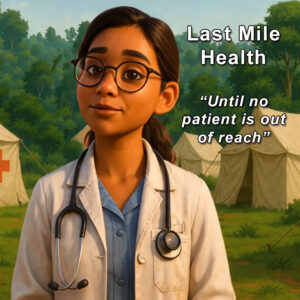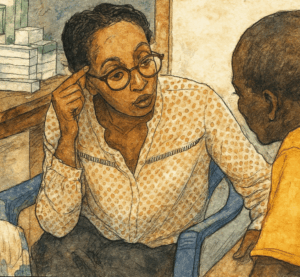Partners In Health works alongside Sierra Leone’s Ministry of Health to improve maternal health outcomes through innovative programs, cultural integration, and modern facility development, addressing one of the world’s previously highest maternal mortality rates.

A Multi-Faceted Approach to Women’s Health in Sierra Leone
In the rural communities of Sierra Leone, Partners in Health (PIH) has implemented a range of initiatives that are dramatically changing the landscape of women’s health care.
Honoring Tradition While Advancing Care
At the heart of PIH’s strategy is a partnership with traditional birth attendants— respected community members who have long supported women through pregnancy and childbirth. Rather than dismissing these cultural figures, PIH employs them as vital links between communities and formal health facilities.
“When PIH came in, it stopped us from conducting home births and gave us the responsibility of referring all pregnant women to the hospital,” said Hawa Sawa, a traditional birth attendant, in an article by PIH. “We were trained on how to talk to patients and counsel them.”
This cultural bridge has proven remarkably effective. Between July 2023 and June 2024, 191 traditional birth attendants working with PIH conducted over 25,000 visits, significantly increasing the number of women seeking care at health facilities.
Empowering the Next Generation
In Kono District schools, PIH has established peer education programs that tackle taboo subjects and empower young people with crucial knowledge about sexual and reproductive health.
“We live in a place where girls still don’t understand the menstrual cycle and sometimes, they don’t come to school when they are on their period,” explained Umu, a peer educator, in the same article. She now leads discussions on topics ranging from menstruation to teenage pregnancy and early marriage.
These youth leaders reach more than 100 students annually through small group discussions and school-wide events, creating a ripple effect of knowledge and support. For Umu, the role has transformed her own confidence while allowing her to guide others through sensitive issues.
“When a student comes to me with a problem, I first calm them down and thank them for coming to me with their problem. I encourage them and make sure they know that it’s all going to get better,” she said in the article.
Supporting Survivors with Dignity
PIH has partnered with the nonprofit Rainbo Initiative to provide comprehensive support for survivors of sexual and gender-based violence. The collaborative approach ensures survivors receive counseling and preliminary exams at Kono Rainbo Center before accessing more extensive care at PIH-supported Koidu Government Hospital (KGH).
“As soon as the referrals come in, we attend to them. We don’t delay justice here,” said Dr. Emaudu Aribior Deen, KGH’s medical superintendent, in the same article.
PIH has invested in specialized training for KGH clinicians to ensure they provide gender-sensitive, dignified care to the 216 survivors who received services between April 2023 and March 2024.
A Hospital Built By Women, For Women
Perhaps the most ambitious project in PIH’s maternal health strategy is the construction of the Maternal Center of Excellence (MCOE). Set to open in January 2026, this 120-bed specialized facility represents a revolutionary approach to women’s health care in the region.
The facility is distinctive not only for its cutting-edge design—featuring a neonatal intensive care unit, labor and delivery suites, and surgical units — but also for the team behind it: 67% of the construction crew is female, embodying the project’s mission of creating a health care facility by women, for women.
Finding Light in Darkness: The Bereavement Support Program
In February 2024, a new initiative at KGH began addressing an often-overlooked aspect of maternal health: the emotional toll of loss.
Sister Patricia Efe Azikiwe, a midwife with decades of experience, launched a bereavement support program after recognizing the need for better emotional care for families experiencing loss during pregnancy or childbirth.
Azikiwe’s motivation stems from personal tragedy. “My sister’s death was what made me to go into midwifery. I vowed that I would do everything possible to save a woman from dying,” said Azikiwe in a PIH article, who now serves as KGH’s reproductive, maternal, newborn, child, and adolescent clinic program manager.
The program offers mental health counseling, emotional coping strategies, and practical guidance for mothers who have lost babies, families grieving loved ones, and mothers of babies born with severe oxygen deprivation. In just its first few months, the program provided comprehensive counseling to 45 people.
A Mother’s Journey: Bintu Jalloh’s Story
Bintu Jalloh didn’t expect a lengthy hospital stay when she arrived at KGH with high blood pressure at 32 weeks pregnant with twins. Within a day, her condition deteriorated, requiring an emergency C-section. Though both babies were initially healthy, one tragically died two weeks later.
Throughout her nearly 60-day hospital stay, Jalloh received ongoing support from Community Health Officer Lamina Mansaray and the bereavement program team.
“It was really tough,” Jalloh said of those weeks. “But due to Lamina and his word of courage, I was able to be okay at the maternity ward.”
The care she received made a lasting impact. During a recent visit to KGH with her thriving baby, Jalloh expressed her gratitude: “My baby is alive [and] strong. Words are not enough to express how grateful [I am] for the care [Lamina] provided to us.”
The Fierce Dedication of a Midwife
At the center of many of these efforts is Sister Azikiwe, whose commitment to her patients extends far beyond standard care. She has been known to sleep in her office during critical cases and personally accompanies nervous mothers through difficult procedures.
“Don’t be scared. I want to see the baby come out. I will follow you… I will stand by you there. I will carry your baby for you,” she told one anxious woman facing a cesarean section.
This dedication has yielded remarkable results. “When I joined in 2022, we recorded 23 maternal deaths,” Sister Azikiwe recalled. “I called a meeting and I told them I said look this has to stop… As long as this patient enters here breathing alive she must not be carried back home dead.”
A Vision for the Future
The new Maternal Center of Excellence will address current challenges in Sierra Leone’s maternal health infrastructure, including the lack of separated spaces for mothers with healthy babies and those who have experienced loss. It will also allow partners or relatives to accompany patients during labor—a simple but profound improvement to the birthing experience.
As PIH continues its work in Sierra Leone and eight other countries, its mission remains focused on ending preventable deaths during pregnancy and childbirth while providing the comprehensive, dignified care that all women deserve.
In Sister Azikiwe’s words, “What keeps me going is the vulnerable and the poor ones we serve. I don’t like seeing people suffer… I want to put smiles on their faces.”
Watch this video by author John Green to learn more about PIH’s work in Sierra Leone:
Related Articles

How Sierra Leone Built Its First Neurosurgery Program
Through grassroots collaboration and support from California nonprofit Mission Brain, Sierra Leone launched its first neurosurgical service, offering hope to eight million people who previously had no access to life-saving brain and spine surgery.

Last Mile Health: Bringing Healthcare to the Most Remote Communities
Last Mile Health transforms healthcare delivery in remote communities by training and paying local health workers, ensuring no patient is out of reach in Liberia, Ethiopia, Malawi, and Sierra Leone.

Partners In Health Expands Community-Based Mental Health Care Across Six Countries
Six mental health program leaders at Partners In Health pioneer community-based care across Haiti, Peru, Sierra Leone, Liberia, Rwanda, and Mexico. They transform stigmatized, inaccessible treatment into integrated primary health services.

Thank you so much for doing all you can to elevate pain & stress of Sierra leone community
Big Momo
🙏